How Music Education Can Benefit Your Child Academically
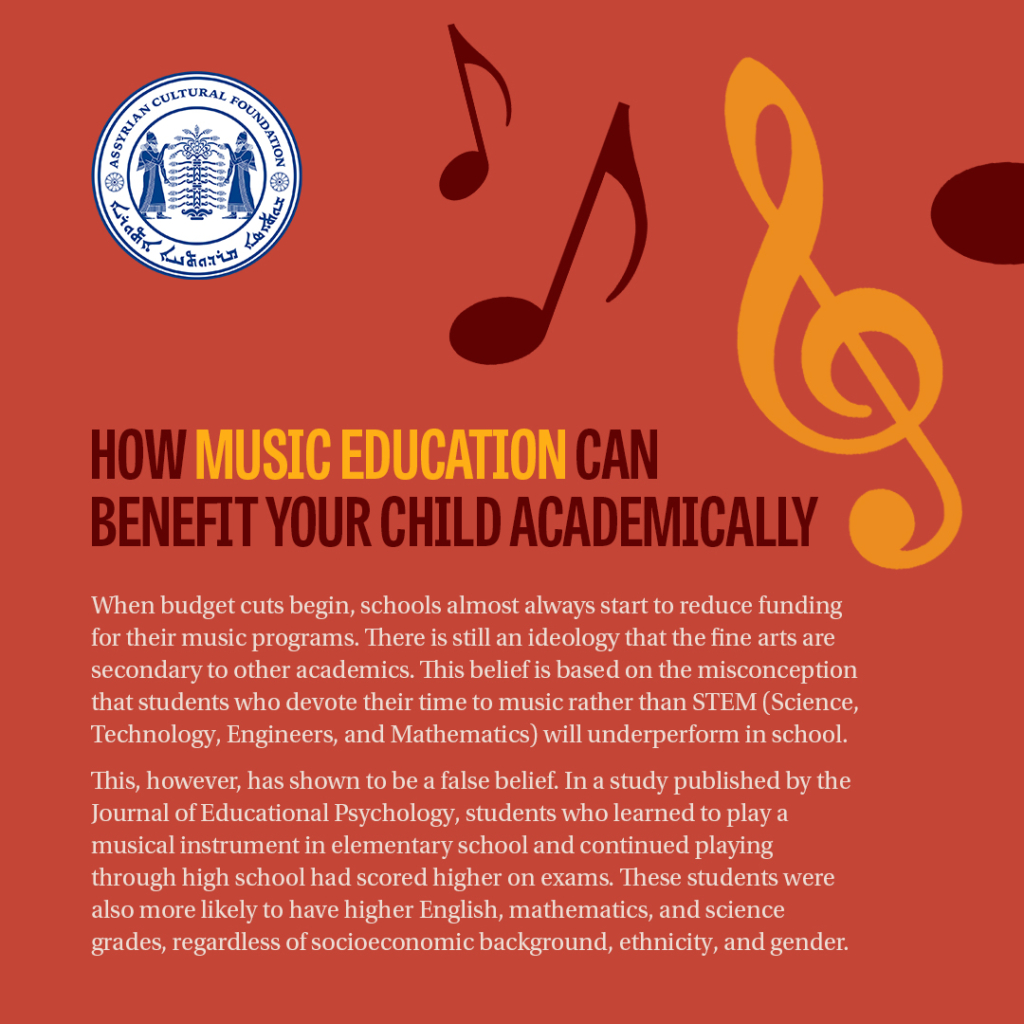
How Music Education Can Benefit Your Child Academically
When budget cuts begin, schools almost always start to reduce funding for their music programs. There is still an ideology that the fine arts are secondary to other academics. This belief is based on the misconception that students who devote their time to music rather than STEM (Science, Technology, Engineers, and Mathematics) will underperform in school.
This, however, has shown to be a false belief. In a study published by the Journal of Educational Psychology, students who learned to play a musical instrument in elementary school and continued playing through high school had scored higher on exams. These students were also more likely to have higher English, mathematics, and science grades, regardless of socioeconomic background, ethnicity, and gender.
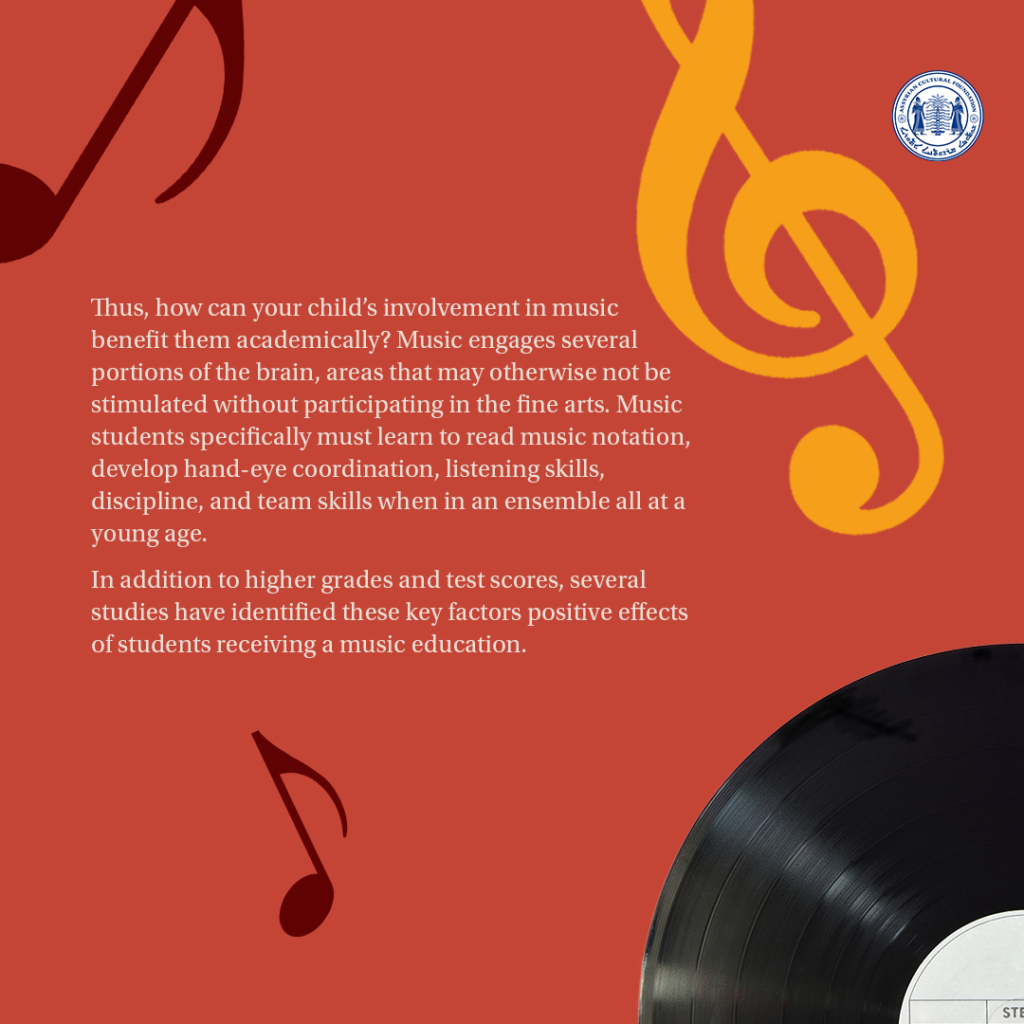
Thus, how can your child’s involvement in music benefit them academically? Music engages several portions of the brain, areas that may otherwise not be stimulated without participating in the fine arts. Music students specifically must learn to read music notation, develop hand-eye coordination, listening skills, discipline, and team skills when in an ensemble all at a young age.
In addition to higher grades and test scores, several studies have identified these key factors positive effects of students receiving a music education.
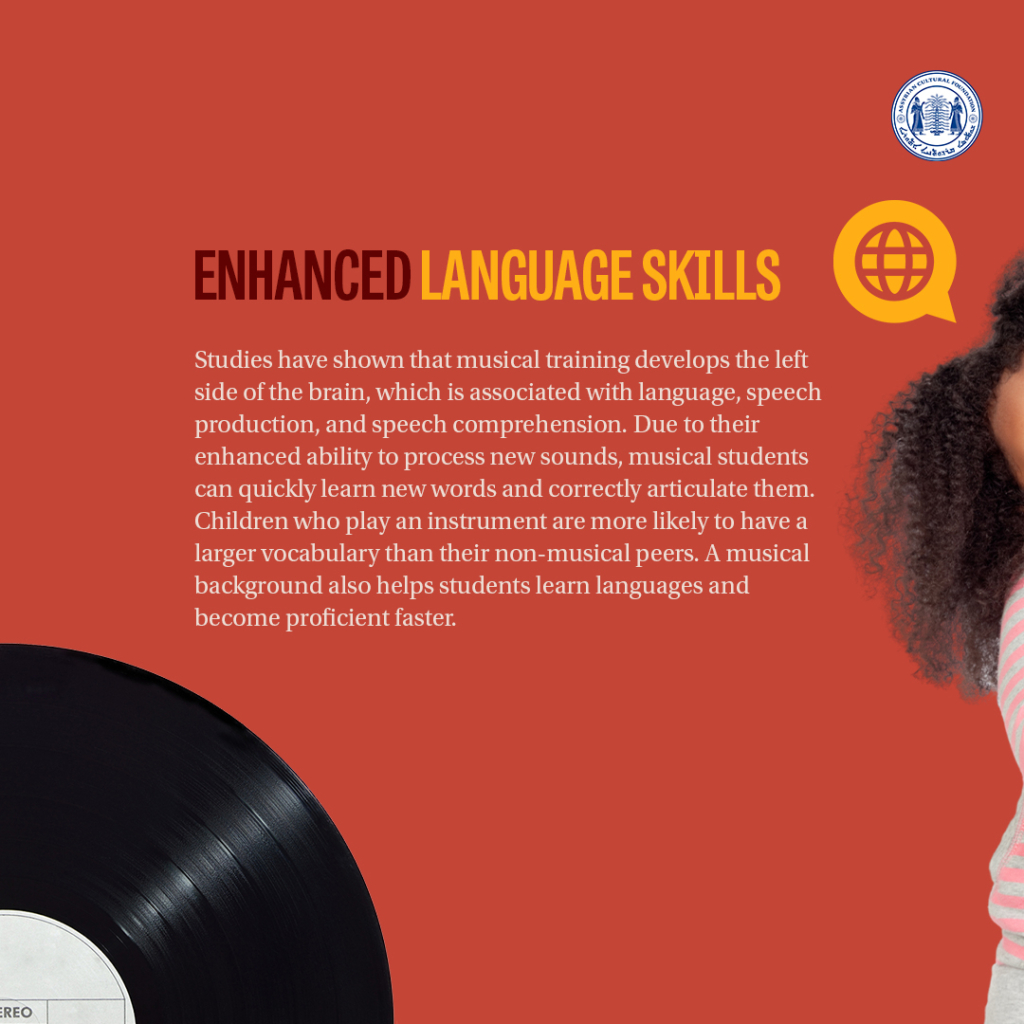
Enhanced language skills
Studies have shown that musical training develops the left side of the brain, which is associated with language, speech production, and speech comprehension. Due to their enhanced ability to process new sounds, musical students can quickly learn new words and correctly articulate them. Children who play an instrument are more likely to have a larger vocabulary than their non-musical peers. A musical background also helps students learn languages and become proficient faster.
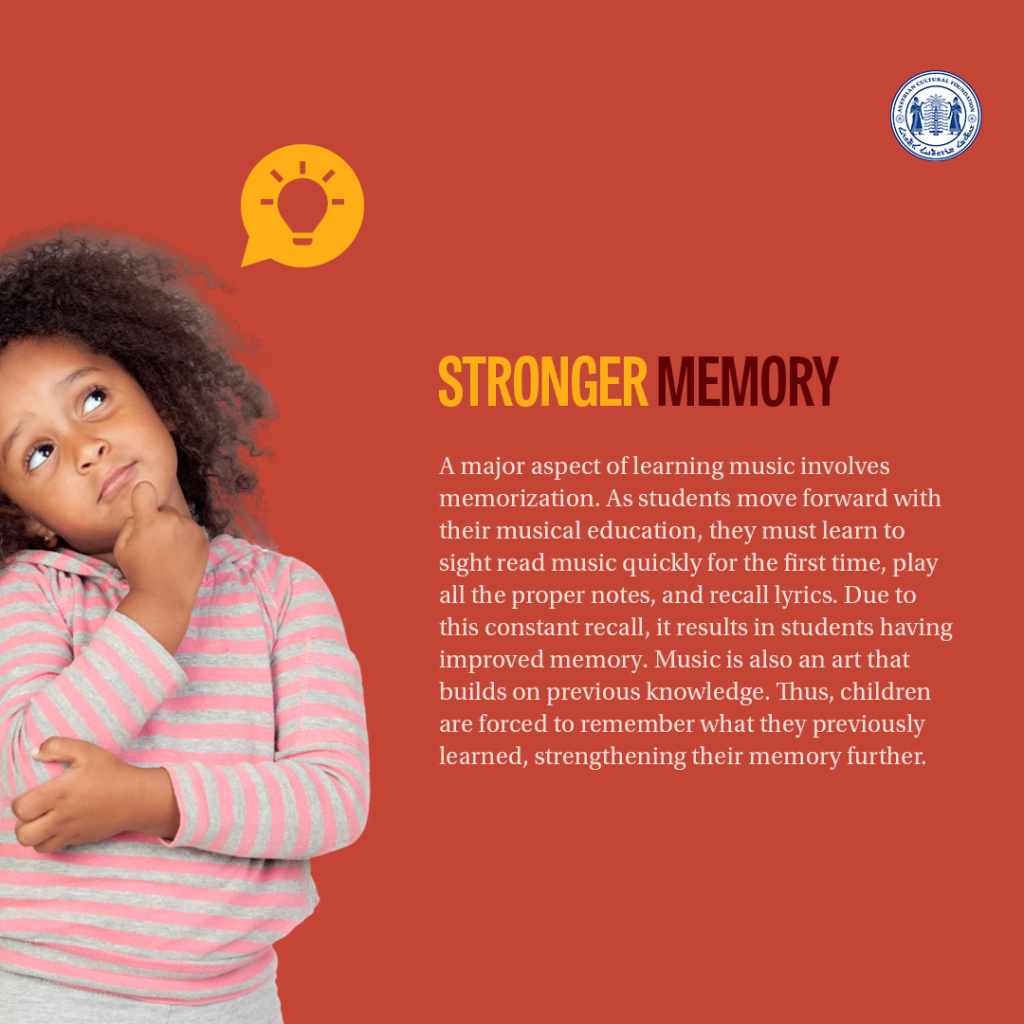
Stronger memory
A major aspect of learning music involves memorization. As students move forward with their musical education, they must learn to sight read music quickly for the first time, play all the proper notes, and recall lyrics. Due to this constant recall, it results in students having improved memory. Music is also an art that builds on previous knowledge. Thus, children are forced to remember what they previously learned, strengthening their memory further.
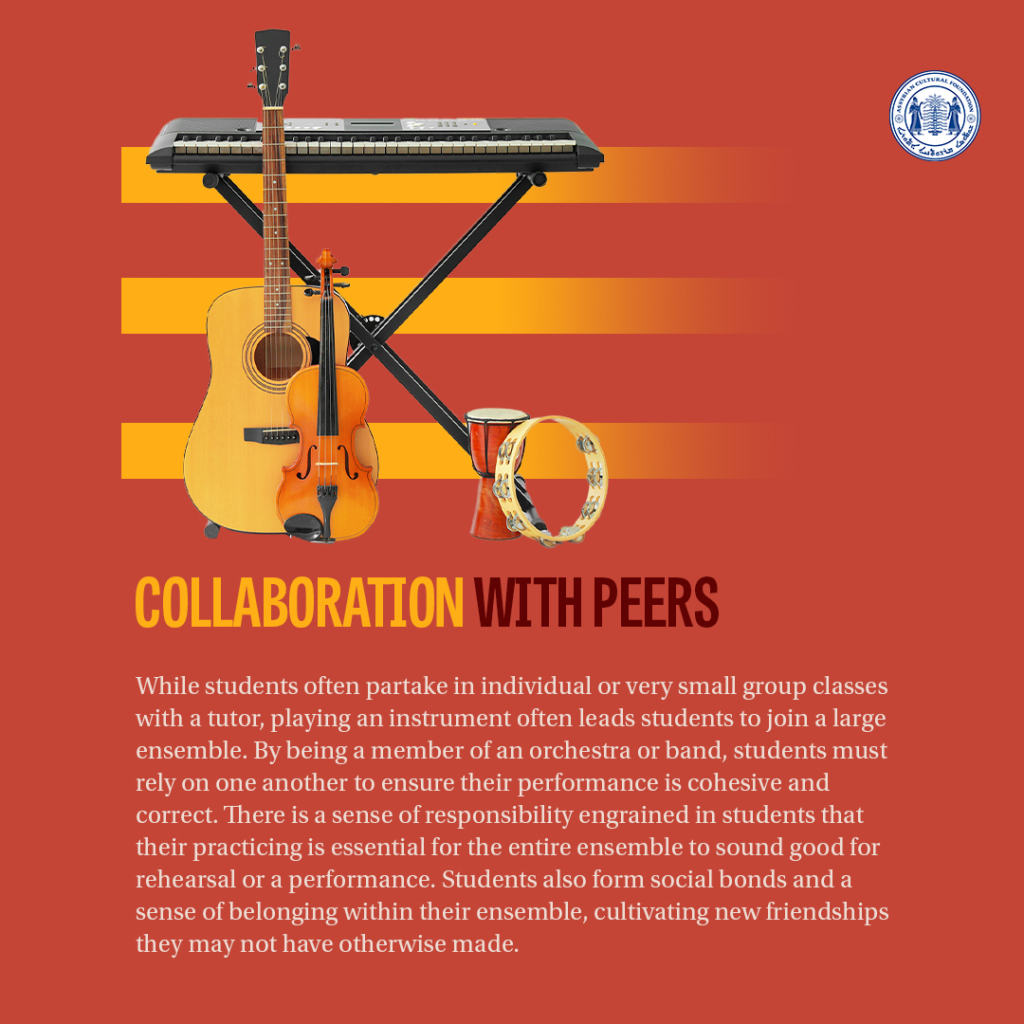
Collaboration with peers
While students often partake in individual or very small group classes with a tutor, playing an instrument often leads students to join a large ensemble. By being a member of an orchestra or band, students must rely on one another to ensure their performance is cohesive and correct. There is a sense of responsibility engrained in students that their practicing is essential for the entire ensemble to sound good for rehearsal or a performance. Students also form social bonds and a sense of belonging within their ensemble, cultivating new friendships they may not have otherwise made.
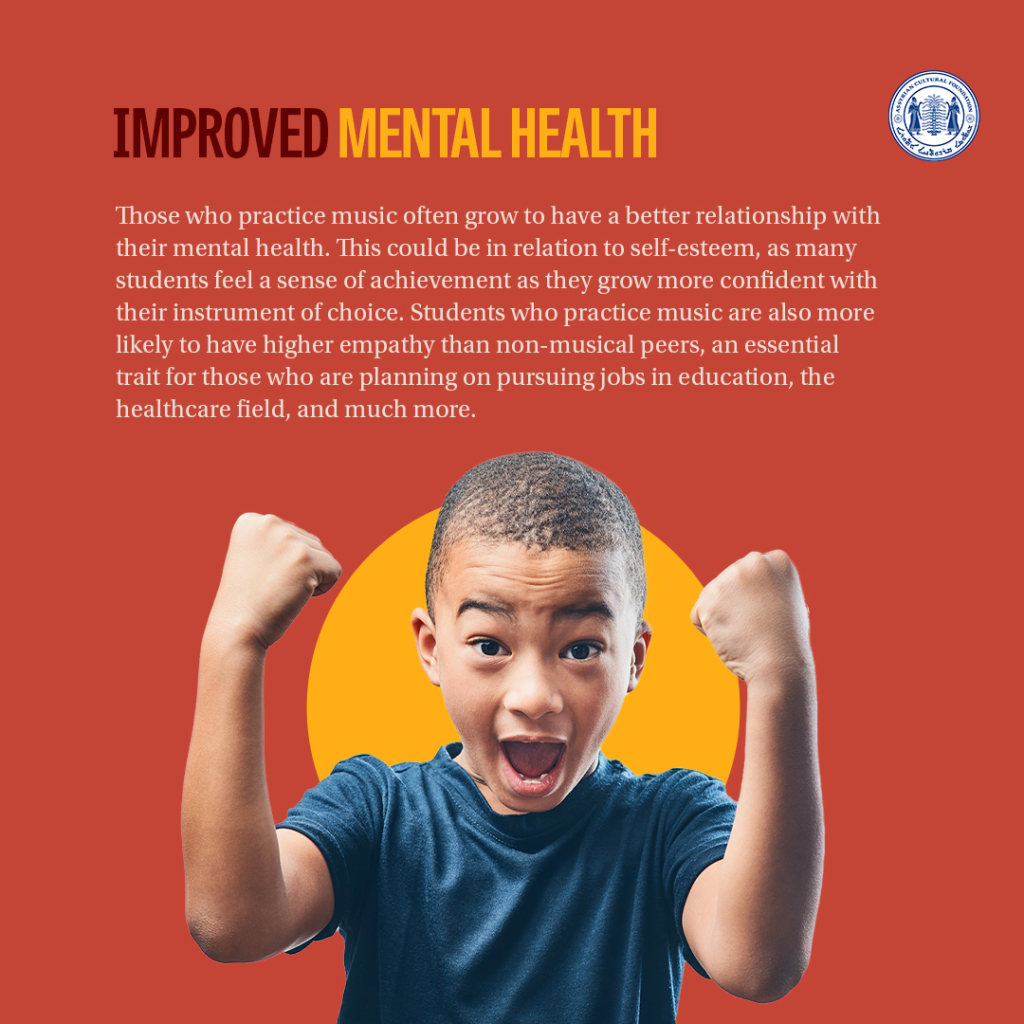
Improved mental health
Those who practice music often grow to have a better relationship with their mental health. This could be in relation to self-esteem, as many students feel a sense of achievement as they grow more confident with their instrument of choice. Students who practice music are also more likely to have higher empathy than non-musical peers, an essential trait for those who are planning on pursuing jobs in education, the healthcare field, and much more.
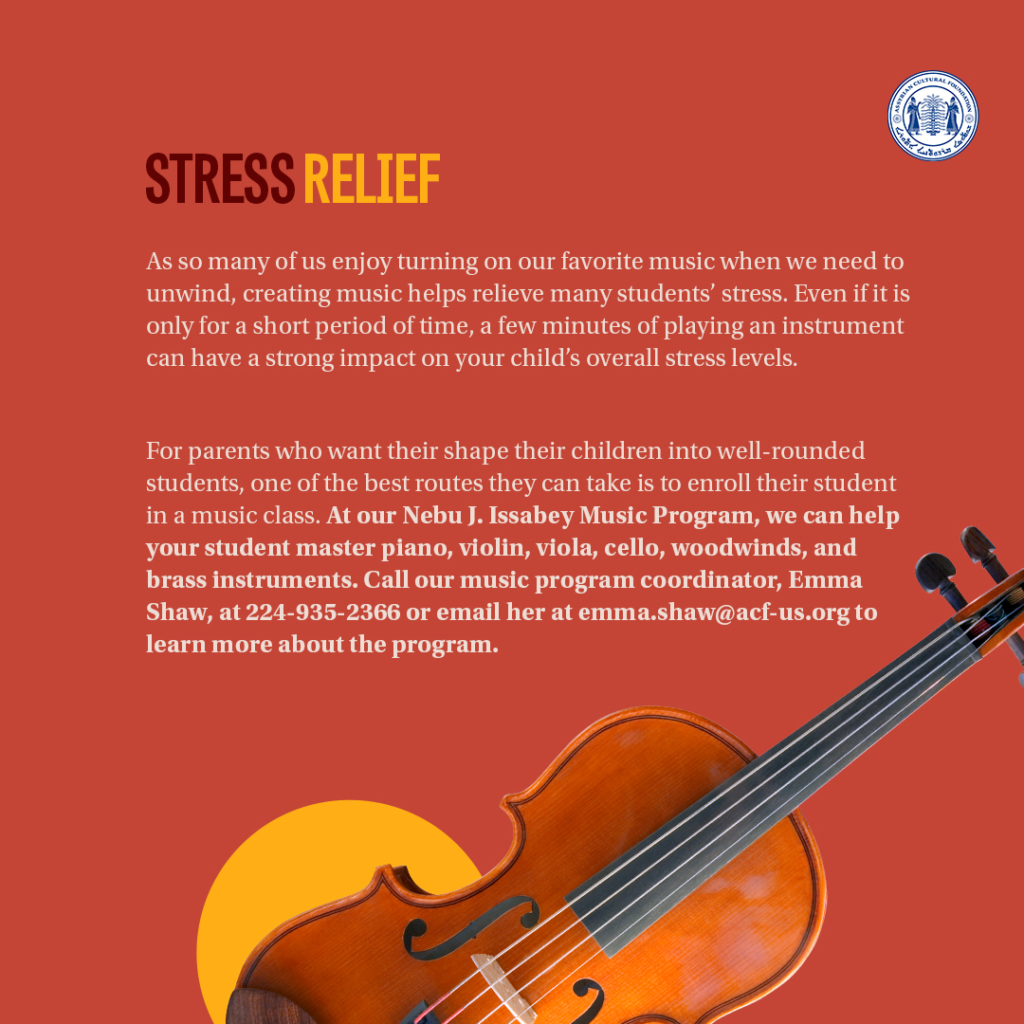
Stress relief
As so many of us enjoy turning on our favorite music when we need to unwind, creating music helps relieve many students’ stress. Even if it is only for a short period of time, a few minutes of playing an instrument can have a strong impact on your child’s overall stress levels.
For parents who want their shape their children into well-rounded students, one of the best routes they can take is to enroll their student in a music class. At our Nebu J. Issabey Music Program, we can help your student master piano, violin, viola, cello, woodwinds, and brass instruments. Call our music program coordinator, Emma Shaw, at 224-935-2366 or email her at emma.shaw@acf-us.org to learn more about the program.
